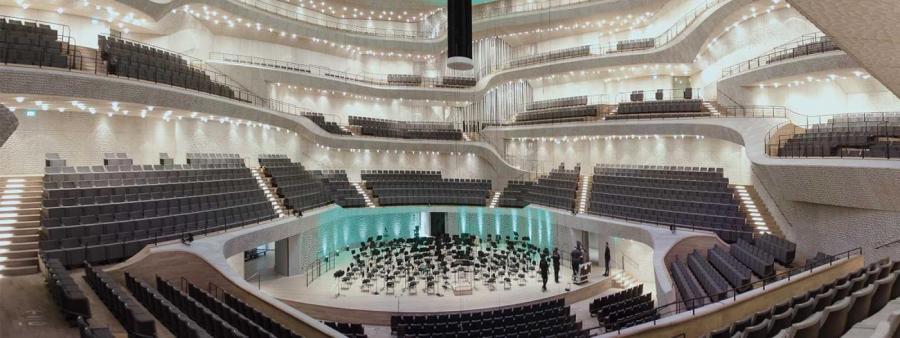Professionals with dynamic competencies | The new essence of the environmental sector

The concept of the city is radically transforming in the face of climate change, driving projects that study its evolution through sustainable solutions.
Population growth, urban sprawl and climate change are redefining the concept of the city. In this new context, acoustics plays a fundamental role in the creation of sustainable urban spaces; and from this perspective, a new generation of professionals that can adapt to the constant changes and develop innovative solutions is being sought.
In this post we advance you the new skills and trends that this 2024 will bring in terms of training and professional future in the environmental acoustics sector.
The Challenges of Urban Sustainability: Acoustics as a Tool for Sustainability
Architectural and environmental acoustics emerges as a fundamental tool for building sustainable cities. This discipline controls and manages sound in different environments to create acoustically comfortable, healthy and efficient spaces.
Sustainable cities seek to offer a high quality of life to their inhabitants, while minimizing their environmental impact. Some of the main challenges to achieve this goal are:
-
Reduction of air and noise pollution.
-
Optimization of energy and resource consumption.
-
Improving urban mobility.
-
Creation of quality green and public spaces.
Professionals with dynamic competencies: The key to success
In this context, the demand for professionals specialized in architectural and environmental acoustics has increased considerably. These professionals are in charge of:
-
Evaluate and analyze the impact of noise in different environments.
-
Designing acoustic solutions for indoor and outdoor spaces.
-
Advise companies and institutions on acoustics.
-
Critical and analytical thinking
-
Ability to adapt and solve problems
-
Knowledge of the latest technologies
Environmental acoustics professionals play a key role in creating a healthier and more sustainable environment for people and the planet.
Related projects: Architectural and environmental acoustics in sustainable cities
Environmental acoustics is concerned with the study and control of sound in the natural and urban environment. It aims to protect people and the ecosystem from the negative impact of excessive noise.
Here are some examples of projects related to environmental acoustics:
Design of public spaces
-
Parks and gardens: Implement strategies to reduce noise from traffic and other sources, such as the installation of noise barriers, vegetation and absorbent pavements.
-
Plazas and streets: Design spaces with materials that absorb sound and promote speech intelligibility.
Sustainable buildings
-
Acoustic insulation: Incorporate materials and construction techniques that minimize noise transmission between interior and exterior spaces.
-
Acoustic facades: Design facades that reduce noise from traffic and other external sources.
-
Natural ventilation: Implement ventilation systems that do not generate excessive noise.
Urban mobility
-
Promotion of public transport and bicycles: Reduce noise from vehicular traffic.
-
Design of electric and hybrid vehicles: Reduce noise and air pollution.
-
Implementation of low emission zones: Limit the circulation of polluting vehicles.
A promising future
Increasing quality of life, new noise protection legislation and growing public awareness of noise are increasingly driving the demand for specialized and professional training in the field of acoustics.
In turn, the demand for professionals with dynamic skills in the environmental sector will continue to grow in the coming years. This trend opens up a new job outlook for those who are trained in these areas and adapt to the changing needs of the market.
In the Master in Architectural and Environmental Acoustics of La Salle-URL we offer highly specialized and applied training in acoustic design of spaces, sound insulation design, noise control and impact studies and noise pollution.
In short, the environmental sector is in a crucial stage of transformation. Professionals with dynamic skills will be the key agents in building a greener and more sustainable future for the world's cities.

MASTER IN ARCHITECTURAL AND ENVIRONMENTAL ACOUSTICS